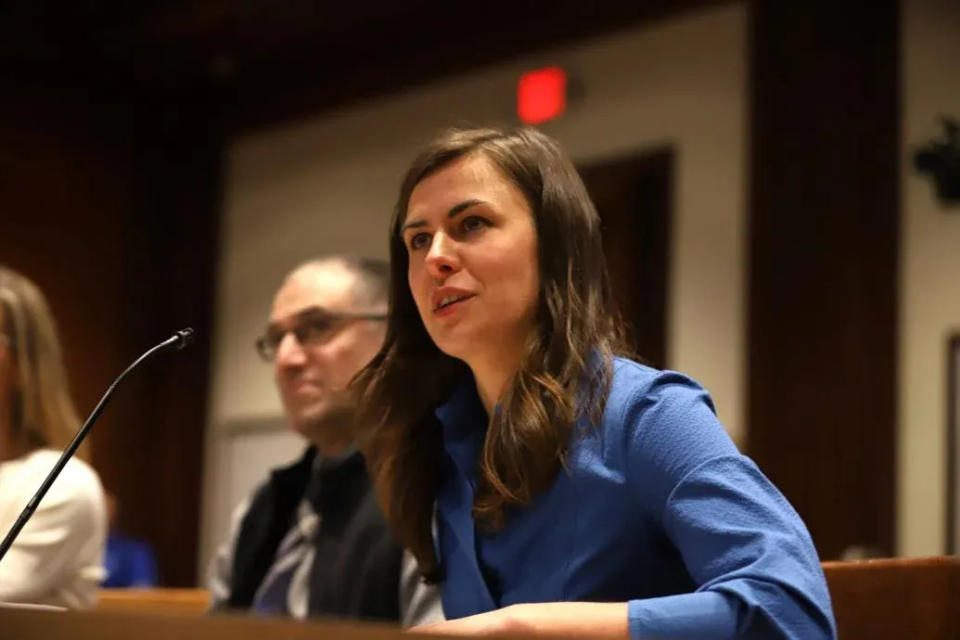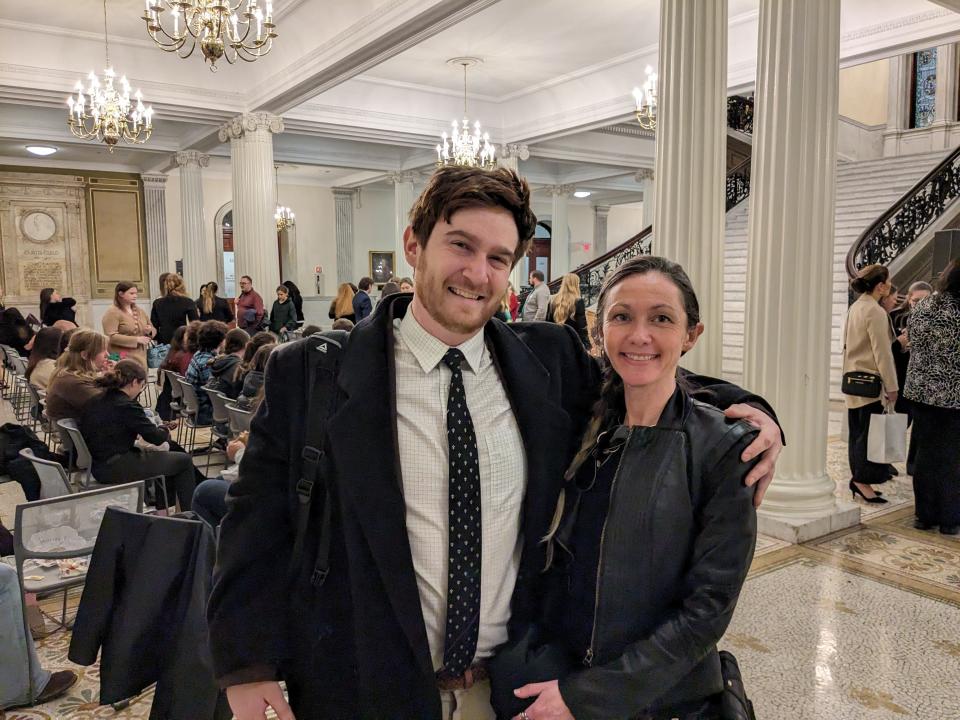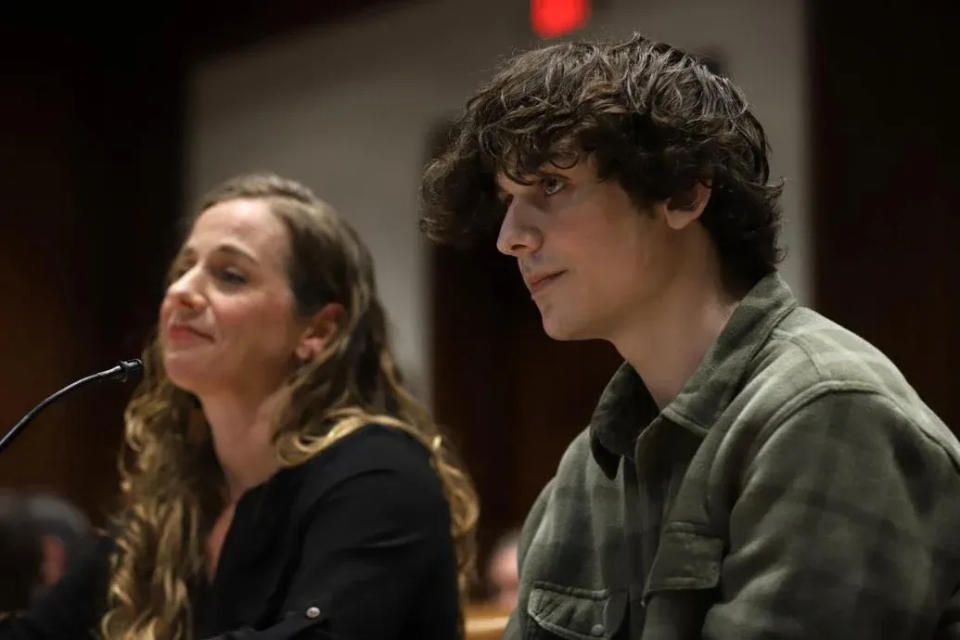Legalizing psychedelics may be up to MA voters this fall. Why opponents want more details
BOSTON — Advocates are calling for a November ballot initiative to bring a legal psychedelics marketplace to Massachusetts.
The 39-page initiative, called the Natural Psychedelic Substances Act, would eliminate criminal penalties for possession and usage of natural psychedelics — including psilocybin — and form a new regulatory commission to provide access to natural psychedelics.
During a public hearing last month at the State House, proponents and opponents of the measure each stated their positions.
Among the ballot initiative's supporters is the Massachusetts for Mental Health Options, an in-state campaign supported by the Washington, D.C.-based New Approach PAC, which has supported and helped pass legislation legalizing psychedelics in other states. An MMHO official testified that most people will receive care through licensed healing centers, where they can access trained professionals.

'Amazing breakthrough': Salem is sixth Mass. community to roll back enforcement on psychedelic mushrooms
“Psychedelics are really powerful,” said Emily Oneschuk, the grassroots campaign director for MMHO. “In order to get the therapeutic benefits that I have gotten out of it and everyone else has, it helps to have someone there to guide you through that process because it can be very difficult.”
Opponents say initiative would push up prices for psychedelics
But opponents of the proposal called on lawmakers to instead send an alternative question to the November ballot.
James Davis, founder of Bay Staters for Natural Medicine, said implementing a new system, as set forth by the ballot question initiative, would push up prices, thereby limiting access. Oregon passed legislation similar to the Massachusetts proposal, then saw its first licensed center charge $3,500 for a “high dose” trip.
“Volunteers have lived here for generations, and do not want plant medicine that has saved their lives to be monopolized and cost thousands of dollars for something that is normally given away for free,” Davis said.

His group and others are suggesting also said that that an alternative question be sent to the November ballot. Under their proposal, there would be no central commission; instead, their initiative would decriminalize possession and create a very basic set of guidelines for those seeking to become a psychedelics facilitator.
“The chair of a very similar commission in Oregon … had to resign because his romantic partner was selling the trainings he was tasked with regulating,” Davis said. “When you have unelected control boards like this, they inevitably fall into corruption.”
Ellen Brown, a member of the Massachusetts Cannabis Advisory Board, added that the alternative bill would be "the most advantageous” in terms of minimizing regulation of the industry and streamlining access for future needs.
“We can do this ourselves here in the state of Massachusetts,” she said. “With in-state ballot initiatives, with in-state advocates, with in-state educators that know what’s going on and what works best for the Commonwealth, not cookie-cutter frameworks from other states.”
Davis says initiative would require therapists to spend thousands on licenses
Davis also said the ballot initiative’s model would require therapists to spend tens of thousands of dollars on licenses and insurance in order to offer treatment. But to obtain a psilocybin facilitators license under the revised version of the law — supported by Davis and Bay Staters for Natural Medicine — trainees would be required to take 20 hours of training and pay a $150 biennial fee, as opposed to 120 hours in Oregon and more in fees, according to Davis.
“What this is all about (the ballot initiative) is tricking people who want to be facilitators, who want to be healers, into taking tens of thousands of dollars in loans for training programs, when we offer training for free,” he said.
The MMHO has proposed ways to increase affordability, which include what it calls community impact pilots.

During last month's State House hearing, Oneschuk spoke of how psilocybin helped her cope with the passing of her brother.
“All of the difficult and hard things I have seen in my life, wove together in a beautiful way where they did not keep me from enjoying it anymore,” she said.
Several other advocates with their own personal stories prior to the legislative hearing.
Mass General official says psychedelics show promise in combating mental health crisis
Dr. Franklin King, director of training and education at Massachusetts General Hospital’s Center for Neuroscience of Psychedelics, testified in support of decriminalization, saying psychedelics show “immense promise” in helping remedy the current mental health crisis.
“We know that for classic psychedelics, particularly psilocybin, the medical risks are extremely minimal, and the potential for (physiological) abuse is close to zero,” he said. “Addiction is not biologically possible.”
But unlike the marijuana industry, psilocybin is consumed in small doses and may only be taken a handful of times in a consumer’s lifetime, Davis said. It does not make sense for there to be centralized distribution, he said, when home cultivation of mushrooms can yield more than enough psilocybin for individuals.
While MMHO’s ballot initiative does include a provision allowing for home cultivation, the amount one can grow is capped, and it’s difficult to stay under the limit given how mushrooms are grown, Davis said.
Other professionals highlighted the lack of research in certain areas and dangers of psychedelics when used by certain populations, like those with schizophrenia.
Psilocybin remains illegal at the federal level, and the ballot initiative would decriminalize small amounts of psilocybin possession, but not legalize it outright in the state.
Sandy Bernier, president of Green Network Providers, a Weymouth-based psychedelics advocacy organization, said facilitators don’t really need a lot of professional training to act as guides for psychedelic experiences.
She said the ballot initiative will likely limit access to marginal communities when everyone should have the fundamental right to their consciousness and “experience altered states of consciousness.”
“We don’t have that kind of time right now,” she said. “We are in a mental health, spiritual crisis. What are we doing about this crisis? We can’t wait.”
This article originally appeared on MetroWest Daily News: MA Elections: Voters may weigh in on legalizing psychedelics

